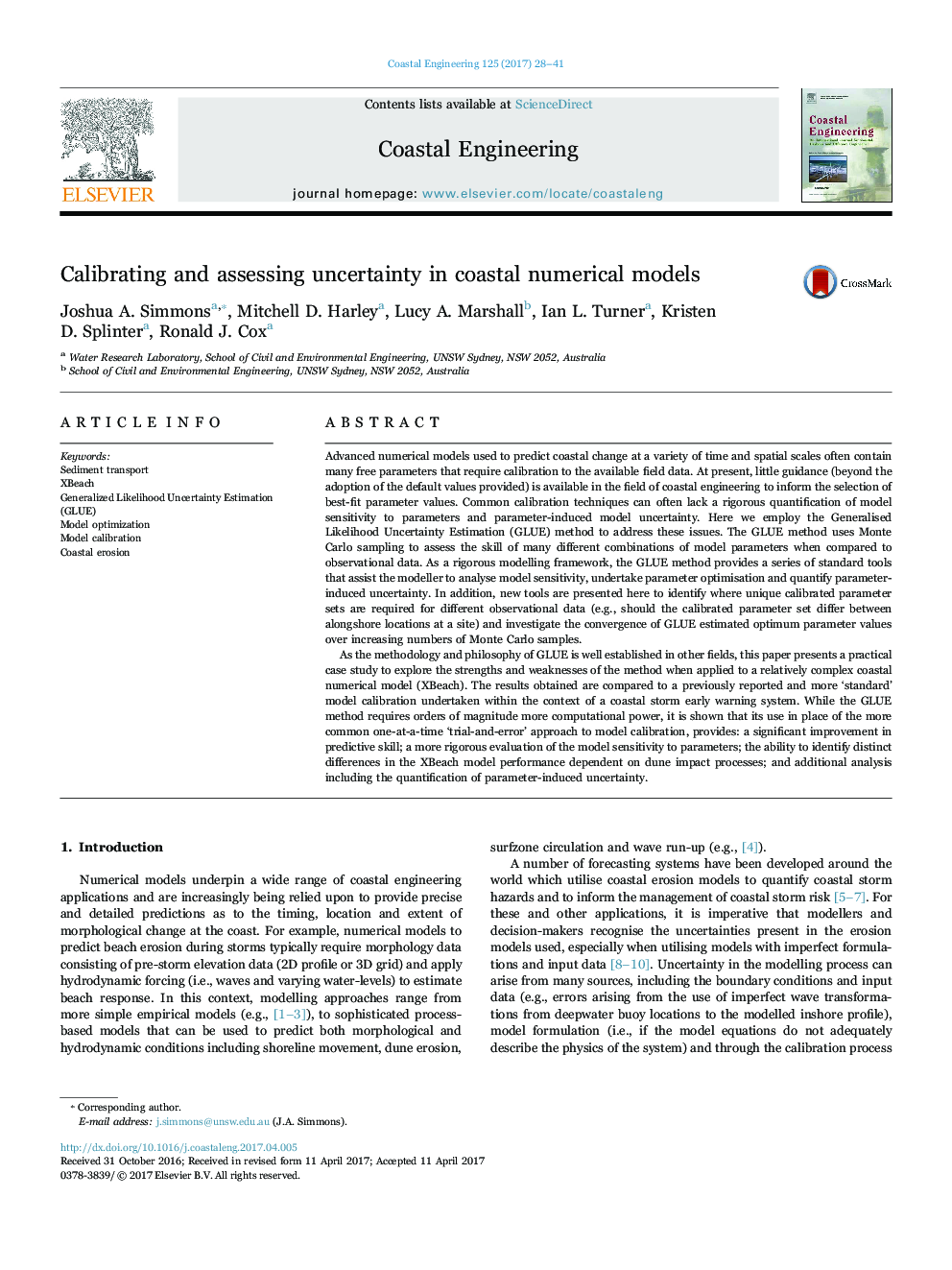| Article ID | Journal | Published Year | Pages | File Type |
|---|---|---|---|---|
| 5473474 | Coastal Engineering | 2017 | 14 Pages |
Abstract
As the methodology and philosophy of GLUE is well established in other fields, this paper presents a practical case study to explore the strengths and weaknesses of the method when applied to a relatively complex coastal numerical model (XBeach). The results obtained are compared to a previously reported and more 'standard' model calibration undertaken within the context of a coastal storm early warning system. While the GLUE method requires orders of magnitude more computational power, it is shown that its use in place of the more common one-at-a-time 'trial-and-error' approach to model calibration, provides: a significant improvement in predictive skill; a more rigorous evaluation of the model sensitivity to parameters; the ability to identify distinct differences in the XBeach model performance dependent on dune impact processes; and additional analysis including the quantification of parameter-induced uncertainty.
Keywords
Related Topics
Physical Sciences and Engineering
Engineering
Ocean Engineering
Authors
Joshua A. Simmons, Mitchell D. Harley, Lucy A. Marshall, Ian L. Turner, Kristen D. Splinter, Ronald J. Cox,
